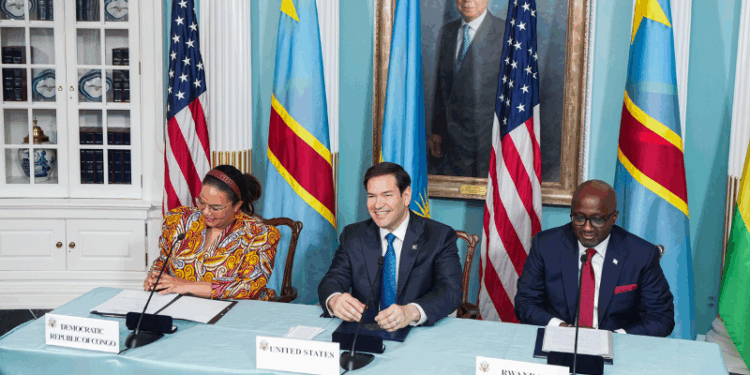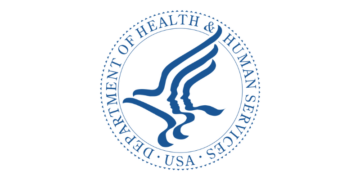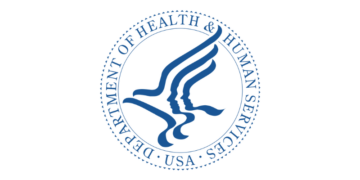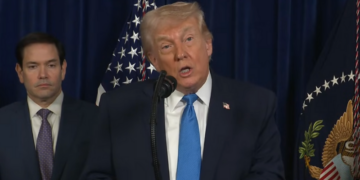Rwanda and the Democratic Republic of Congo (DRC) have agreed to create a peace agreement by May 2, 2025, to address the rising conflict in eastern DRC. The agreement was formalized by the foreign ministers of both nations and observed by U.S. Secretary of State Marco Rubio, who conveyed the U.S. government’s dedication to supporting the peace initiative.
The signing event, held in Washington, D.C., represented an unusual instance of collaboration between the two countries, which have historically disagreed over the violence occurring in the eastern regions of the DRC. This violence, mainly driven by the M23 rebel faction, which faces accusations of receiving support from Rwanda, has led to significant displacement and destruction. Numerous civilians have lost their lives in confrontations between DRC forces and the M23 rebels, who have taken control of critical cities in the area, such as Goma and Bukavu.
Secretary Rubio underscored the peace agreement’s importance, pointing out its broader regional effects. He stated, “A durable peace in the Great Lakes region will open the door for greater U.S. and broader Western investment,” indicating that stable governance could create economic opportunities for the region.
Cautious optimism was expressed by both foreign ministers, with DRC’s Foreign Minister Therese Kayikwamba Wagner emphasizing that the agreement represents a “political commitment” to achieving peace. She remarked, “Peace must come first, followed by the rebuilding of trust, and then – only when conditions are right – the careful reopening of a path to meaningful bilateral cooperation.”
Rwanda’s Foreign Minister, Olivier Nduhungirehe, acknowledged the progress made but insisted that achieving lasting peace would be challenging. “Today we are talking about the real issues, the root causes that must be addressed to achieve a lasting peace in our region,” Nduhungirehe declared. He highlighted the significance of security, the repatriation of refugees, and the necessity of developing new economic ties between the two nations.
The United States has played a pivotal role in facilitating these discussions, with senior advisor Massad Boulos playing a key role in steering the dialogue. Under the agreement, Rwanda and the DRC have pledged to mutually recognize sovereignty, address security concerns, and assist in the return of displaced individuals.
Despite ongoing fighting in some parts of North Kivu, the signing of the Declaration of Principles signals a potential shift in diplomatic efforts to achieve peace in a region plagued by conflict for many years. Both parties have vowed to work toward a broad peace agreement, which, if successful, could reshape the region’s future and enable essential investment and development.










